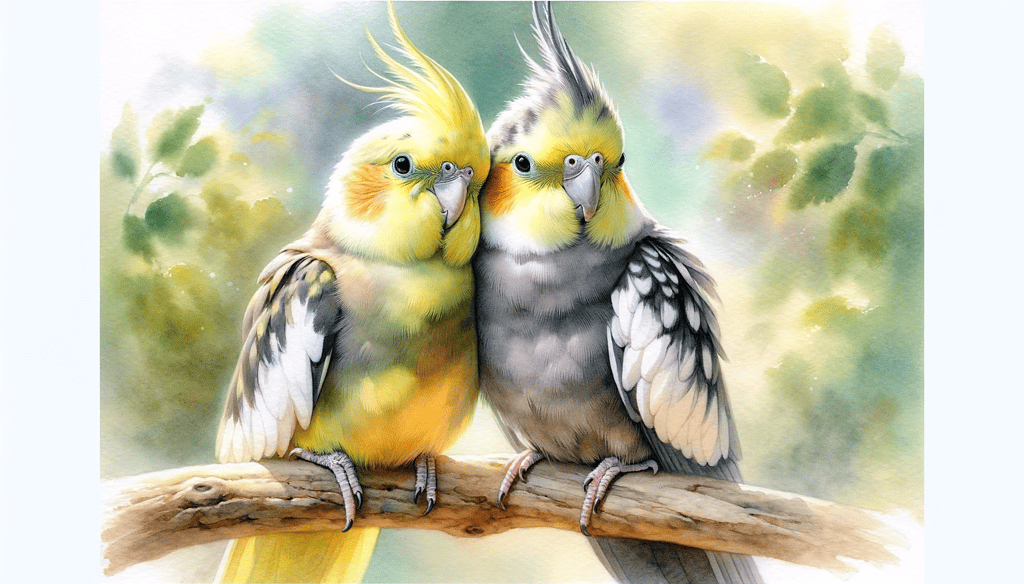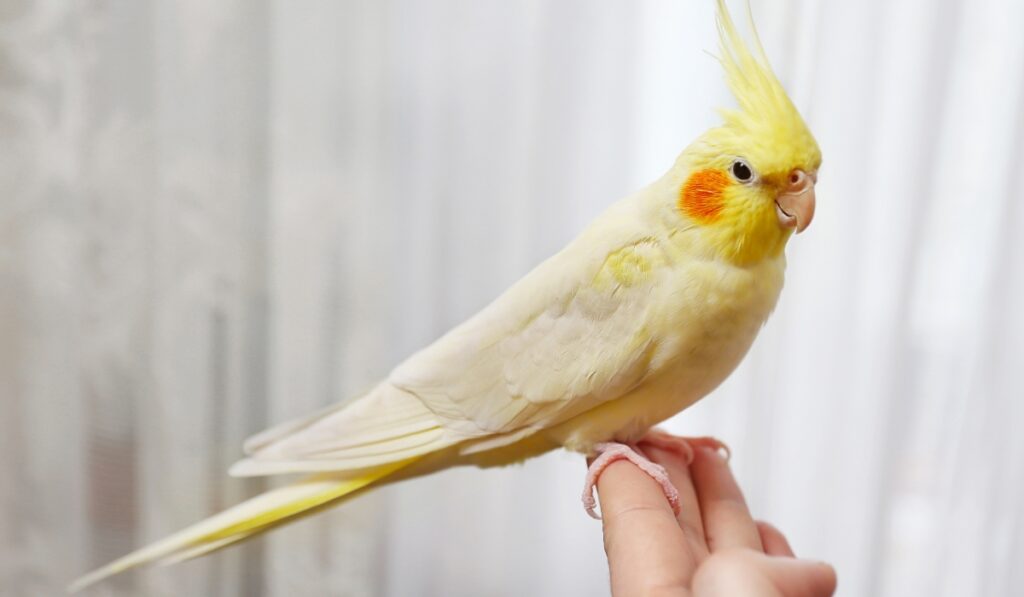
Choosing the right Cockatiel is a delightful yet daunting task, especially for new bird enthusiasts. Are you wondering how to ensure you pick a healthy, happy feathered friend? What are the signs of a robust Cockatiel, and where do you find one?
As a general rule, a healthy Cockatiel should exhibit vibrant feathers, clear eyes, and active behavior. It’s essential to understand their health needs, recognize early signs of illness, and know where to find reputable sources for adoption or purchase.
In this comprehensive guide, I’ll share my expertise on identifying the signs of a healthy Cockatiel, addressing common health issues, and choosing the best source for your new feathered friend. Let’s embark on this journey together to ensure you bring home a
Signs of a Healthy Cockatiel: What to Look For
While understanding Cockatiels, it’s essential to recognize the signs that indicate their health status. Just like any pet, Cockatiels show various physical and behavioral signs that can help you determine their well-being.
1. Physical Signs of a Healthy Cockatiel
Observing the physical condition of a Cockatiel is the first step in assessing its health. Let’s compare the healthy versus unhealthy signs in these beautiful birds:
| Aspect | Healthy Sign | Unhealthy Sign |
| Feather Condition | Smooth, well-preened, and vibrant feathers | Fluffed, plucked, or dirty feathers |
| Beak Appearance | Smooth, properly aligned, and normal growth | Overgrowth, misalignment, or discoloration |
| Eye Clarity | Bright, clear, and alert eyes | Cloudy, watery, or crusty eyes |
| Skin and Nostrils | Clean skin and clear nostrils | Discharge or crustiness around nostrils |
| Posture and Gait | Upright posture and steady gait | Hunched posture or imbalance |
These indicators are a great starting point for assessing the health of a Cockatiel.
2. Behavioral Signs of a Healthy Cockatiel
Behavior is just as telling as physical appearance when it comes to a Cockatiel’s health. Here are some key behaviors to observe:
Healthy Behaviors:
- Active and alert: A healthy Cockatiel is usually curious and responsive to its environment.
- Regular eating and drinking habits: Consistent eating patterns are a good sign.
- Social interaction: Healthy Cockatiels often enjoy interacting with their human companions or other birds.
- Normal vocalization: Regular chirping or singing indicates a happy bird.
- Regular preening: Preening is a natural behavior for maintaining feather health.
Concerning Behaviors:
- Lethargy or inactivity: A lack of activity can be a sign of illness.
- Changes in appetite: A sudden increase or decrease in eating can indicate health issues.
- Aggression or withdrawal: Significant changes in behavior can be a stress or health indicator.
- Excessive plucking or self-mutilation: This can be a sign of stress, boredom, or illness.
- Irregular vocalization: Changes in the usual chirping or singing patterns might suggest discomfort or distress.
Remember, you’re not just choosing a pet; you’re welcoming a new member into your family. By being attentive to these health indicators, you’re taking a significant step towards providing a loving and nurturing environment for your feathered friend.
Preparing to Choose Your Cockatiel

Now that you know what a healthy Cockatiel looks like, let’s prepare to find the perfect one for you. It’s not just about the bird’s appearance; where and how you choose your Cockatiel is equally important.
1. Importance Of A Reputable Breeder Or Rescue
Finding a reputable breeder or rescue is a critical step in ensuring you bring home a healthy and well-socialized Cockatiel. A good breeder or rescue will prioritize the health and welfare of their birds. Here’s what to look for:
- Experience and Knowledge: Choose someone who is experienced and knowledgeable about Cockatiels. They should be able to answer all your questions about the bird’s care, diet, and health.
- Health Guarantees: Look for breeders or rescues that offer health guarantees and have a clear return policy.
- Transparency: A reputable source will be transparent about the bird’s history, health records, and the conditions in which they were raised.
- Recommendations: Seek recommendations from other bird enthusiasts or avian veterinarians. Positive word-of-mouth is a good sign of a trustworthy source.
- Veterinary Records: Ensure the bird has a history of regular vet check-ups and vaccinations.
2. While Visiting Potential Cockatiels: What to Observe
When you visit a breeder, pay close attention to the following:
- Cage Cleanliness: The living conditions should be clean and well-maintained. Dirty cages can lead to health issues in birds.
- Bird Interaction: Observe how the birds interact with each other and with humans. Well-socialized birds are usually more adaptable and easier to train.
- Overall Environment: The environment should be safe, spacious, and enriched with toys and perches. This indicates that the birds are well cared for.
- Staff Knowledge and Care: Notice how knowledgeable and caring the staff are. Their attitude towards the birds can greatly influence the birds’ health and temperament.
- Health of Other Birds: Look at the health of the other birds in the facility. This can give you an insight into the overall care and health management practices of the breeder or rescue.
3. What To Avoid While Finding A Healthy Cockatiel
It’s important to know what to look for and what to avoid while finding a healthy Cockatiel. Here are some red flags to watch out for:
- Lack of Knowledge: Sellers or breeders who seem uninformed about Cockatiel care and health.
- No Health Records: Unwillingness to provide health history or veterinary records of the birds.
- High Stress in Birds: Birds that seem overly fearful or aggressive.
- Pressure to Buy: Sellers who rush or pressure you into making a purchase.
Choosing a reputable source is not just about getting a healthy bird; it’s also about supporting ethical breeding and care practices.
Conclusion
Picking a healthy Cockatiel involves keen observation, understanding their health needs, and choosing a reputable source. As we’ve explored, the joy of welcoming a Cockatiel into your life is immeasurable, but it comes with the responsibility of ensuring their well-being. I’ve witnessed the joy these birds bring into homes. They’re not just pets; they become part of your family.
Did you find this guide helpful in your journey to choose a healthy Cockatiel? I’d love to hear your thoughts in the comments. If you enjoyed this article and found it informative, please feel free to share it with fellow bird enthusiasts and potential Cockatiel owners. Your feathered friend awaits!
Frequently Asked Questions
What is the average lifespan of a Cockatiel?
A well-cared-for Cockatiel can live for 15-20 years.
What are the signs of a sick Cockatiel?
Signs include changes in appetite, lethargy, ruffled feathers, and abnormal droppings.
How often should Cockatiels visit the vet?
Cockatiels should have annual check-ups, with more frequent visits if health issues arise.
